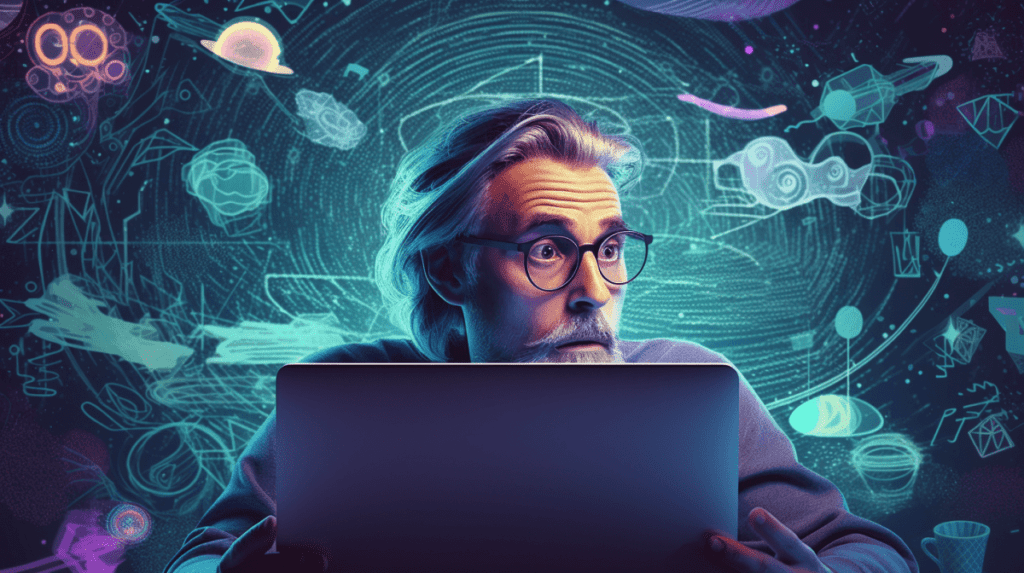
As the debate around the evolution of ChatGPT's performance continues among users and researchers, OpenAI is relentlessly enhancing its flagship AI chatbot with new features.
This week, Logan Kilpatrick, OpenAI’s pioneer developer advocate and developer relations expert, announced on X (formerly Twitter) that a “slew of ChatGPT updates are set to roll out over the next week.”
Kilpatrick spotlighted several new features including example prompts (already visible for the author, see screenshot below), suggested replies and follow-up questions (which Kilpatrick described as “extremely helpful in reducing fatigue”), a default GPT-4 setting for ChatGPT Plus subscribers to avoid toggling on the latest/most advanced publicly available OpenAI large language model (LLM) every time they initiate a new chat, support for multiple file uploads when using the OpenAI Code Interpreter plugin, and more.
A plethora of ChatGPT updates are set to roll out over the next week ??
1. Example prompts: Say goodbye to staring at a blank page!
2. Suggested replies: ChatGPT automatically formulates follow up questions. I’ve been using this for the past month and it's extremely helpful in reducing fatigue.…
— Logan.GPT (@OfficialLoganK) August 3, 2023

The initial response from users was a mixed bag. While some lauded the new features, including the default GPT-4 and the extended login period, others in the OpenAI and ChatGPT subreddit communities on Reddit questioned, “Will it stop apologizing too? I sure hope so.”
Some even criticized the addition of example prompts as being “distracting for someone with ADHD.”
Comment
by u/mindonautca from discussion OpenAI just added prompt examples, suggested replies, multiple file upload and more to ChatGPT today!
in OpenAI
However, it's still early days for these new features, and it will be interesting to see which ones users will embrace and incorporate into their workflows, and which ones will fall by the wayside.
The introduction of these new features coincides with reports that OpenAI has filed a trademark application with the U.S. Patent and Trademark Office (USPTO) for GPT-5, the next LLM in its series. The application hints at potential features such as “the artificial production of human speech and text,” and “translation of text or speech from one language to another.”
VentureBeat's mission is to serve as a digital hub for technical decision-makers to gain insights about transformative enterprise technology and transact. Explore our Briefings.
rnrn
Title: OpenAI Introduces Massive Set of ChatGPT Updates: Suggested Prompts, Multiple File Uploads, and More
OpenAI, a pioneer in artificial intelligence research and industry-leading developments, recently announced the roll-out of a considerable collection of updates to its renowned language processing model, ChatGPT. These enhancements include the introduction of suggested prompts and the facilitation of multi-file uploads, diversifying the interaction capabilities and enhancing the quality of this powerful algorithm.
ChatGPT has received accolades for its proficiency in delivering sophisticated and human-like text, facilitating an array of applications from drafting emails to creating written content. OpenAI’s recent upgrades are set to exponentially augment its functionality and accessibility, serving to assist a wider audience while delivering more relevant outputs.
The introduction of Suggested Prompts offers a significant boost to ChatGPT's usability. Previously, users may have been unsure how to generate the most effective responses from the model or may have struggled with articulating a suitable prompt. A suggested prompt feature aims to mitigate these challenges by providing users with predefined prompts. This feature assists users in evoking a desirable model response, particularly useful for those less versed in the relationship between input and output or for when the user needs inspiration.
Another considerable update is the model’s ability to handle multiple file uploads. In the earlier version of ChatGPT, its functionality was limited to processing one document at a time. The lack of multi-file capability required users to merge their files manually before processing, which was time-consuming and inefficient. Now however, users can upload multiple documents simultaneously, substantially reducing preliminary operations and enabling a smoother interaction with the tool.
This multi-file feature will be instrumental in those sectors where voluminous text sources are utilized, such as legal, academic, and administrative domains. It will enable the swift processing of a plethora of documents concurrently, thereby increasing productivity and facilitating efficient data management.
While addressing these major feature additions, it is worthy to note that these updates are just a small fraction of the vast enhancements OpenAI has incorporated into the ChatGPT. Other significant updates include improvements to the model's instructional following, the document length it can process, and enhancements relating to ethical use, all of which are aimed at providing a more refined and secure user experience.
OpenAI's focus on continuous innovation and development is evident in this roster of impactful updates. This not only expands the range of possibilities for the existing applications of ChatGPT but also opens up new avenues for exploration.
The recent enhancements to ChatGPT serve as a compelling reminder of the rapidly advancing capabilities of AI and how OpenAI continues to deliver groundbreaking updates in language processing, setting an impressive precedent in this ever-evolving field. As we eagerly anticipate future developments, we can only marvel at the leaps and bounds AI technology has made and the potential it holds to shape the horizon of multiple industries and disciplines.